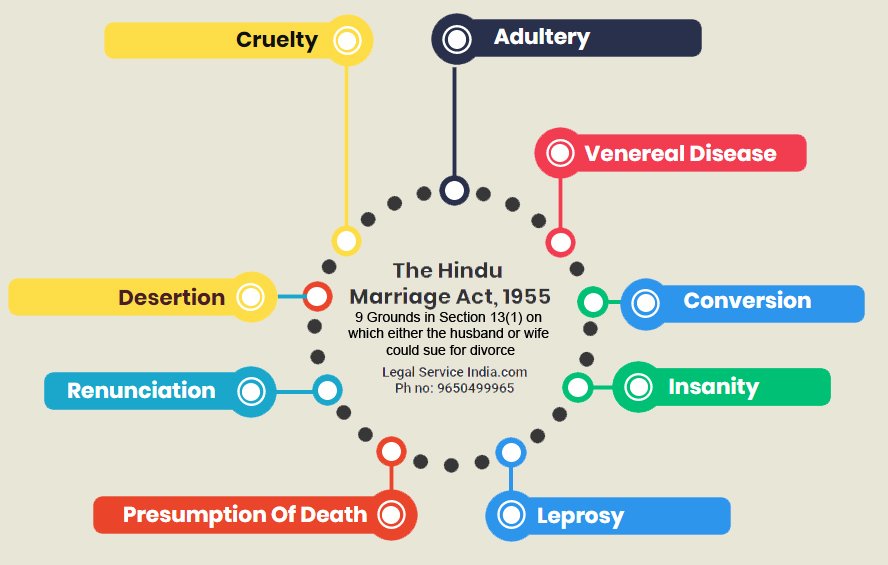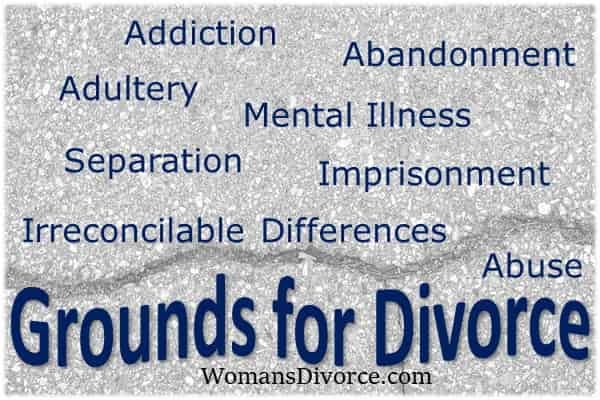Divorce is a complex legal process, and understanding the grounds for divorce is essential for navigating it effectively. Grounds for divorce refer to the legal reasons a spouse can cite to dissolve a marriage. These grounds can be broadly categorized into fault-based and no-fault grounds. This guide explores the definitions and requirements of each type, helping you understand what is needed to pursue a divorce.

Fault-Based Grounds for Divorce
Definition and Examples
Fault-based grounds for divorce require a spouse to prove that the other party is responsible for the breakdown of the marriage. These grounds can vary by state but generally include:
- Adultery: One spouse has engaged in a romantic or sexual relationship with someone outside the marriage.
- Cruelty: One spouse has inflicted emotional or physical harm on the other, making it intolerable to continue the marriage.
- Abandonment: One spouse has left the other without consent or justification for a specified period, typically over a year.
- Imprisonment: One spouse has been convicted of a crime and sentenced to imprisonment for a certain duration.
- Habitual Drunkenness or Drug Abuse: One spouse has a persistent problem with alcohol or drugs that affects the marriage.
Legal Requirements
To obtain a fault-based divorce, you must provide evidence supporting the alleged grounds. This typically involves:
- Filing a Petition: Submit a divorce petition citing the specific fault grounds and providing details to substantiate your claim.
- Gathering Evidence: Collect evidence such as testimonies, documents, or records that support your allegations.
- Proving Fault: Present evidence in court to prove that the fault grounds are valid and that the other spouse is responsible for the marriage’s dissolution.
No-Fault Grounds for Divorce
Definition and Examples
No-fault grounds for divorce do not require proving wrongdoing by either spouse. Instead, the petitioner only needs to demonstrate that the marriage has irretrievably broken down. Common no-fault grounds include:
- Irreconcilable Differences: The spouses have fundamental disagreements or conflicts that cannot be resolved, leading to the breakdown of the marriage.
- Separation: The spouses have lived apart for a specified period, typically ranging from six months to two years, indicating that the marriage is no longer viable.
Legal Requirements
No-fault divorces are generally simpler to obtain than fault-based divorces, as they do not require proof of wrongdoing. Requirements typically include:
- Filing a Petition: File a divorce petition stating that the marriage is irretrievably broken or that the parties have been separated for the required period.
- Affidavits or Declarations: In some jurisdictions, you may need to provide affidavits or declarations affirming that the marriage has broken down and reconciliation is not possible.
Common Considerations for Both Types of Divorce
Jurisdictional Differences
Divorce laws and grounds vary by state or country. It’s essential to understand the specific legal requirements and available grounds for divorce in your jurisdiction. Consulting with a family law attorney can provide guidance tailored to your location.
Impact on Divorce Proceedings
The grounds for divorce can impact various aspects of the proceedings, including:
- Property Division: In some cases, fault-based grounds may influence the division of marital property, although many jurisdictions use equitable distribution regardless of fault.
- Spousal Support: Fault-based grounds may affect spousal support decisions in certain jurisdictions, with the at-fault spouse potentially facing different support obligations.
- Custody Arrangements: While fault-based grounds are less likely to influence custody decisions, allegations of abuse or neglect may affect the determination of child custody.
Legal Advice and Representation
Seeking legal advice from a family law attorney is crucial when navigating divorce grounds. An attorney can help you:
- Understand Your Options: Explore the available grounds for divorce and determine which is most appropriate for your situation.
- Prepare Your Case: Gather evidence, file necessary documents, and present your case effectively in court.
- Navigate Legal Requirements: Ensure compliance with legal requirements and deadlines to facilitate a smooth divorce process.
Conclusion
Understanding the grounds for divorce is a critical aspect of navigating the divorce process. Whether pursuing a fault-based or no-fault divorce, knowing the legal definitions and requirements helps you make informed decisions and effectively manage your case. By consulting with a family law attorney and addressing the grounds for divorce appropriately, you can work towards a resolution that supports your legal and personal goals.










